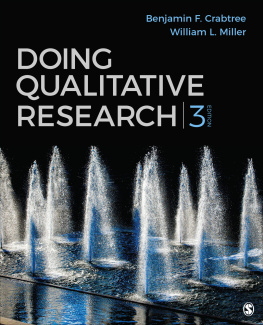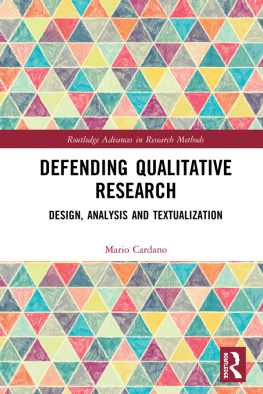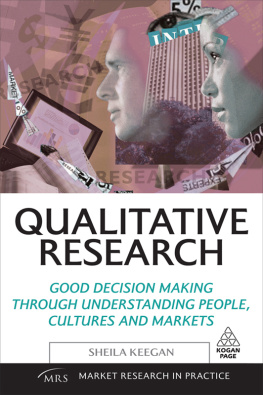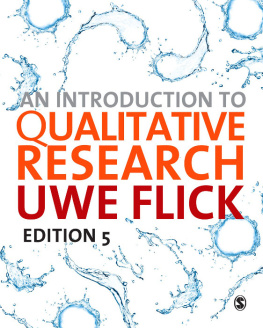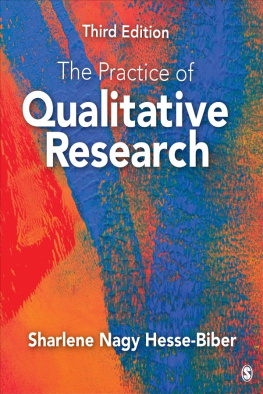
Routledge Revivals
Qualitative Research in Criminology
Published in 1999, this text brings together detailed reflexive accounts of authors experiences of conducting research on a variety of criminological topics. The broad aim of the book is to critically review how qualitative methods can be effectively deployed in the area of criminology. The conclusions reached in the text are diverse, reflecting the range of qualitative methods considered and the particular criminological topics to which they are applied. A common theme throughout is that whilst qualitative research can help to provide valid and meaningful information on criminological issues, researchers need to carefully reflect upon both the methodological and ethical dimensions of their work. The book will appeal to those who wish to understand the experience of conducting qualitative research on aspects of crime and criminal justice. This will include undergraduate and postgraduate students undertaking research for the first time, as well as experienced researchers and teachers.
This book was originally published as part of the Cardiff Papers in Qualitative Research series edited by Paul Atkinson, Sara Delamont and Amanda Coffey. The series publishes original sociological research that reflects the tradition of qualitative and ethnographic inquiry developed at Cardiff. The series includes monographs reporting on empirical research, edited collections focussing on particular themes, and texts discussing methodological developments and issues.
First published in 1999
by Ashgate Publishing Ltd
This edition first published in 2018 by Routledge
2 Park Square, Milton Park, Abingdon, Oxon, OX14 4RN
and by Routledge
711 Third Avenue, New York, NY 10017
Routledge is an imprint of the Taylor & Francis Group, an informa business
1999 Fiona Brookman, Lesley Noaks and Emma Wincup
All rights reserved. No part of this book may be reprinted or reproduced or utilised in any form or by any electronic, mechanical, or other means, now known or hereafter invented, including photocopying and recording, or in any information storage or retrieval system, without permission in writing from the publishers.
Publishers Note
The publisher has gone to great lengths to ensure the quality of this reprint but points out that some imperfections in the original copies may be apparent.
Disclaimer
The publisher has made every effort to trace copyright holders and welcomes correspondence from those they have been unable to contact.
A Library of Congress record exists under LCCN: 98074933
ISBN 13: 978-0-8153-4797-2 (hbk)
ISBN 13: 978-1-351-14144-4 (ebk)
Qualitative Research in Criminology
Edited by
FIONA BROOKMAN
LESLEY NOAKS
EMMA WINCUP
Fiona Brookman, Lesley Noaks and Emma Wincup 1999
All rights reserved. No part of this publication may be reproduced, stored in a retrieval system, or transmitted in any form or by any means, electronic, mechanical, photocopying, recording or otherwise without the prior permission of the publisher.
Published by
Ashgate Publishing Limited
Gower House
Croft Road
Aldershot
Hants GU11 3HR
England
Ashgate Publishing Company
131 Main Street
Burlington, VT 05401-5600 USA
Ashgate website: http://www.ashgate.com
Reprinted 2001
British Library Cataloguing in Publication Data
Qualitative research in criminology. - (Cardiff papers in
qualitative research)
1. Criminology - Research - Methodology
I. Brookman, Fiona II. Noaks, Lesley III. Wincup, Emma
364.072
Library of Congress Control Number: 98-74933
ISBN 1 84014 5714
Printed and bound in Great Britain by Biddles Limited, Guildford and Kings Lynn.
Contents
Fiona Brookman, Lesley Noaks and Emma Wincup
Mark Drakeford
John Michael Roberts
Fiona Brookman
Mike Levi and Lesley Noaks
Lee Monaghan
Rosalind Beck
Emma Wincup
Tom Cockcroft
Lesley Noaks
Alejandra Gomez-Cespedes
Andy Pithouse
The editors would like to thank all of the contributors to this volume. We extend our particular thanks to Amanda Coffey for encouraging us with the original idea. Our thanks also to the other series editors, Paul Atkinson and Sara Delamont, and to Jackie Swift for her efficiency in producing the text. As editors we have found our involvement with this project both stimulating and enjoyable and it has encouraged us to work together on future research projects.
Fiona Brookman, Lesley Noaks and Emma Wincup
This collection of original papers explores the application of qualitative research to a wide range of criminological topics, including traditional areas of criminological enquiry such as violent crime and topics which have only recently entered research agendas, for example, private policing. The publication of this volume in the Cardiff Papers in Qualitative Research series extends an established tradition of qualitative research at Cardiff which has already explored areas as diverse as gender, health and medicine, education and childhood.
Academic scholarship in criminology at Cardiff has a long standing national and international reputation. The high academic standing of the subject area is reflected in a flourishing and vibrant research community involved in both funded research and an extensive range of postgraduate work. Qualitative research methods have served as an integral part of the programme of research undertaken and this text will demonstrate how a variety of such methods can be effectively deployed to extend knowledge and understanding. While this edited collection does not exhaust the diversity of criminological research undertaken at Cardiff, it does give an indication of the range of empirical work that researchers are involved in. All of the contributors are directly linked to Cardiff, either as postgraduates, staff and, in some cases both. All of the chapters discuss research projects which are ongoing or have only been recently completed. In presenting their firsthand research accounts, authors reflexively consider the methodological and ethical questions and dimensions to their work. The volume thus makes a unique contribution to the field of criminology through providing detailed reflexive accounts of the experiences of conducting research. In so doing the book complements other texts on research methods in criminology which primarily deal with methodological issues in the abstract.
Organisation of the book
Chapters in the book are organised around two inter-related themes: the process of criminalisation and responses to crime and criminal activity. In the first section, the concern is with the processes by which certain activities are labelled as criminal and thereby come within the remit of a range of criminal justice agencies. A recurring theme in the contributions in this section is an acknowledgement that the boundaries of criminal behaviour are socially constructed and as such are shifting and fluid entities. The contributions span the historical perspective. Drakeford traces the public order experience of the Greenshirts, a 1930s uniformed political movement which agitated amongst the unemployed and became the only organisation to be prosecuted under the 1936 Public Order Act. Roberts focuses on Speakers Comer, a public sphere which has its origins in the criminal culture of eighteenth century London. In exploring these diverse research areas, both authors acknowledge that the concepts of crime and deviance, and indeed responses to crime and deviance, are historically relative.




